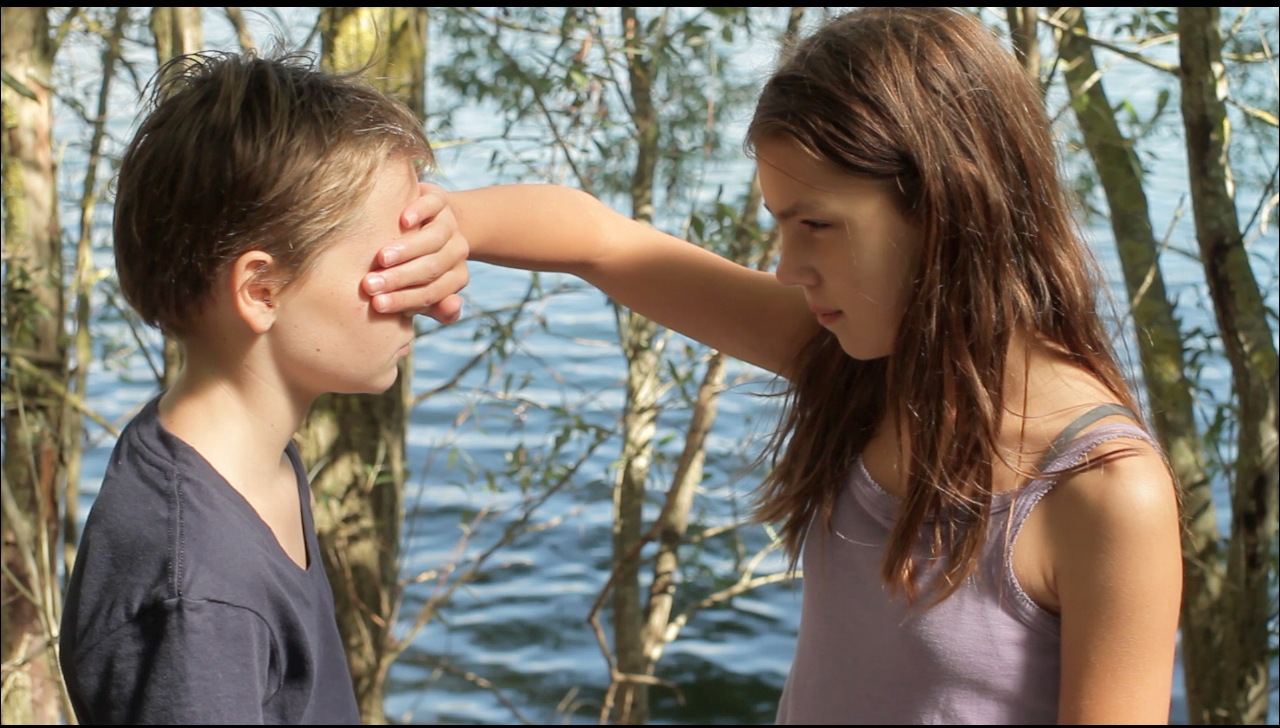Céline Sciamma’s Tomboy tells a small-scale story that’s sensitive to its depiction of gender uncertainties. However, because its cast are pre-adolescents, the wider overtones of sexuality don’t really come into the picture (though it won the LGBT Teddy Award at this year’s Berlin Film Festival). It’s not exactly the tale of a “summer of love”, and is resolved in a finally benign way, but there’s much that is poignant in its heroine’s development to a greater self-awareness.
Ten-year-old Laure (the very talented Zoé Héran) arrives in her family’s new home, where her father and heavily pregnant mother are already installed along with her six-year-old sister Jeanne (Malonn Lévana). She’s clearly been away on an (unspecified) trip, and she feels a sense of wider unsettlement that comes from this new location. Its quiet, semi-suburban environment seems idyllic, particularly in the gentle light of summer (well caught throughout in the film’s visuals). Though part of small block of flats, it’s surrounded by woods and a lake, where Laure will spend much of the film playing with the group of children she encounters on her first excursion outdoors.
The first friend she makes is Lisa (Jeanne Disson, pictured below with Héran), who with her long hair is very much a girl, while Laure with her short cut and elphine features is clearly the tomboy of the title. So when Lisa takes Laure for a boy, in the decision of a moment she plays along with it (significantly, too, she chooses to call herself Mikael, suggesting she’s creating a new persona that crosses not only gender, but nationality too).
 This all plays along gently as the two become firm friends who, among other things, dress each other up; in one scene, Lisa puts make-up on her companion ("You look great as a girl!" - we can't but wonder if she knows something’s up). Younger sister Jeanne, who’s grown-up for her years, readily adopts the story once she becomes aware of it. The awkwardness comes only in the stolen, and very childish, kisses that the two exchange in the woods.
This all plays along gently as the two become firm friends who, among other things, dress each other up; in one scene, Lisa puts make-up on her companion ("You look great as a girl!" - we can't but wonder if she knows something’s up). Younger sister Jeanne, who’s grown-up for her years, readily adopts the story once she becomes aware of it. The awkwardness comes only in the stolen, and very childish, kisses that the two exchange in the woods.
But second-time director Sciamma, working from her own script, catches something else in the wider story very well – the balance of feelings, inclusion and exclusion, that a newcomer feels when faced with an established group of kids (in fact, some of actress Héran’s real-life friends). The skinny child takes to her role as a boy rather naturally, on the football field, as well as practising spitting in the way she/he sees a boy should do it. When it comes to swimming she’s no less ingenious, shaping something to put under her trunks out of plasticine (the difficulties when she needs to pee are more complicated).
Laure clearly feels engaged as a boy, and deals with the rivalries that come up in the group as a boy would, finally with her fists. The new term is approaching, and the fact that Mikael’s name isn’t on the school list hints that revelation is on its way, but it’s the bruises she leaves on one of the boys that bring the denouement. Sciamma avoids music throughout the film, and the shame and sense of mix-up that ensues when Laure's secret emerges (and necessarily becomes public knowledge, with some attendant bullying) is underpinned all the more strongly in silence.
At just over 80 minutes, it’s a small story, but the quality and naturalness of the performances the director draws from her cast of children is as true as they come. Life goes on, of course, symbolised not least by the arrival of the new baby in the family. In the future you imagine its protagonists will remember it as a strange vignette – somehow I don’t see a troop of therapists coming in to investigate – of the kind that life is simply rich in.
Watch the trailer to Tomboy















Add comment